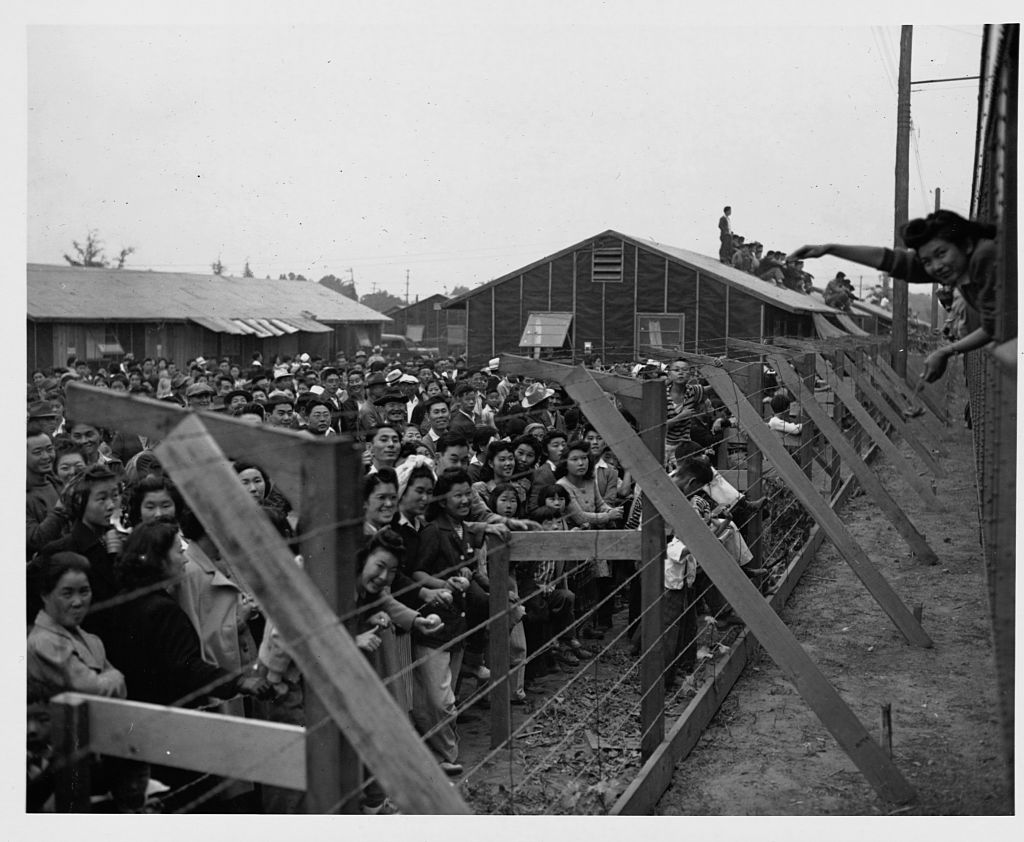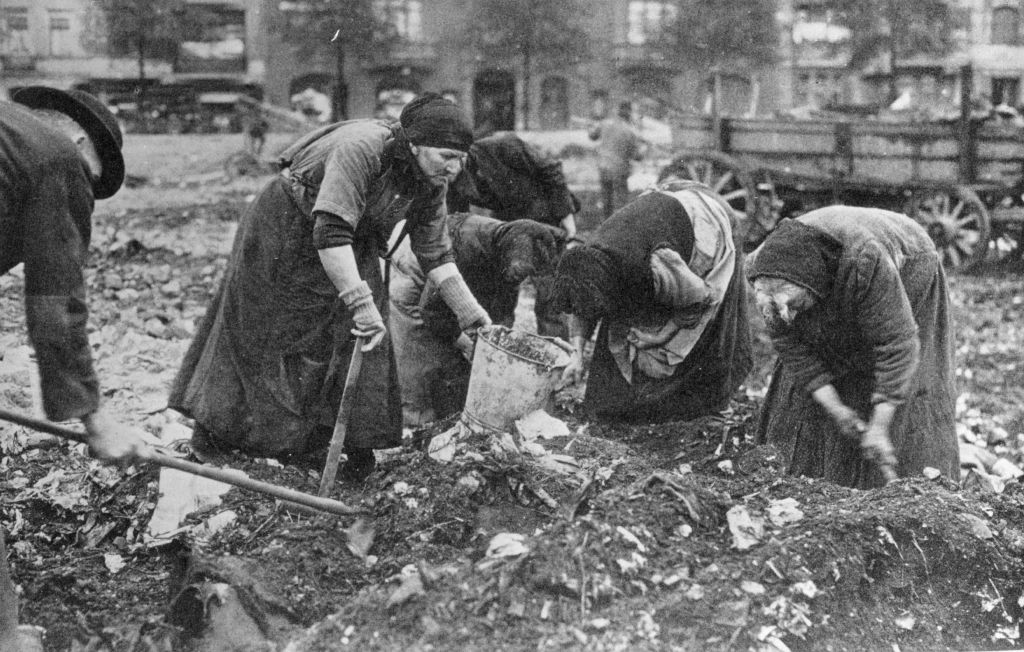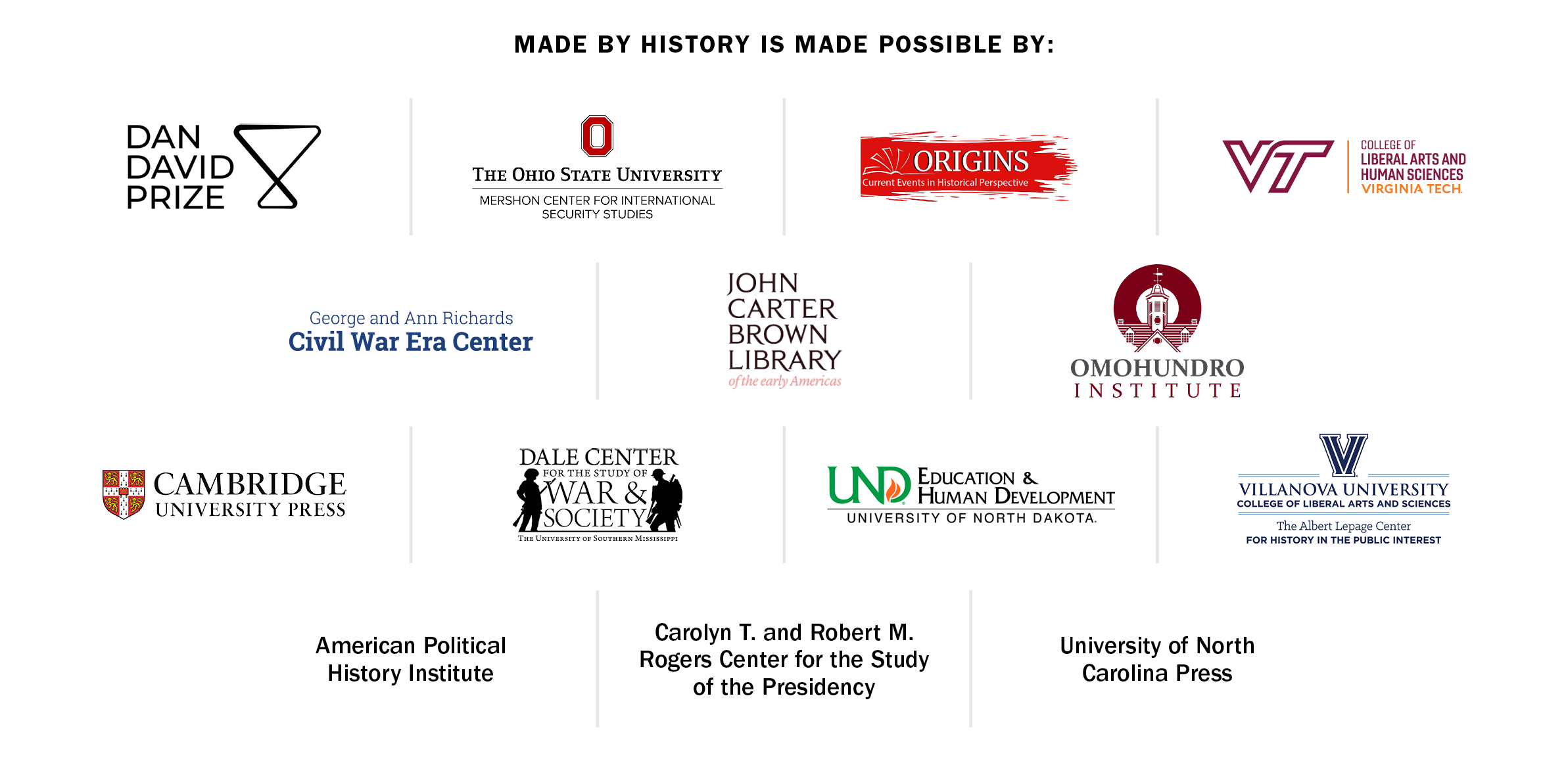
Around the world, civilians are under siege, victims of wars they never sought and cannot flee. From Israel and Gaza to Yemen and the Congo, and from Somalia to Ukraine and beyond, innocent men and women have been bombed, raped, displaced, and starved with routine barbarity. These cases spotlight how, in the heat of war, when hatred of the enemy runs high, sympathy for civilians is all too scarce. Once attacked, each side understandably imbibes a combustible cocktail of fear, fury, and grief, which numbs them to the other’s pain.
But history shows that later, when wars end and distance brings perspective, countries can end up confronting an uncomfortable reality. Often, such violent tactics were acts of misplaced revenge—ones that provoke serious regret.
The U.S. experienced this after World War II. During the war, the U.S. interned Japanese Americans who had nothing to do with Japan’s attack on Pearl Harbor, and it imposed a harsh occupation on Germany, exacerbating the suffering of average Germans, two-thirds of whom never voted for the Nazis. Both were punitive policies that the U.S. came to regret. These actions, and others like them, should be a caution to countries in conflict today. They are reminders that mistreatment of civilians is not simply unethical, it undermines a lasting peace.
The attack on Pearl Harbor stunned the U.S. It left Americans furious, frightened, and thirsting for revenge. Immediately, a handful of Army and War Department officials began pushing for the relocation of Japanese Americans, who they argued posed a threat to military installations on the West Coast. These officials falsely claimed that residents were signaling to enemy ships, raising fears of another attack.
The push for internment came despite the government’s own surveys of West Coast residents showing that a meager 14% favored forcing Japanese Americans out of their homes and into internment camps. The figure was a bit higher in southern California at roughly one-third, but it never came close to a majority until after President Franklin D. Roosevelt issued an executive order mandating internment.
Additionally, the government possessed ample evidence showing that Japanese Americans posed no threat. Intelligence reports documented that the overwhelming majority of Japanese Americans were loyal to the U.S. Roosevelt even sent a personal investigator to survey Japanese Americans, and he reported back that they had far more to fear from the wrath of white Americans than the other way around.
But in the climate of fear permeating the U.S. after Pearl Harbor, the government officials pushing internment won Roosevelt over. In March 1942, he signed the order to relocate 110,000 Japanese Americans into internment camps. Most of them languished there until the war’s end nearly four years later.
One of internment’s more prominent supporters was California’s Attorney General Earl Warren, who later became governor and then, most famously, Supreme Court Chief Justice. Toward the end of his life, Warren expressed profound regret. “It was wrong to react so impulsively… even though we felt we had a good motive in the security of our state.” Warren came to understand that “fear, get-tough military psychology, propaganda, and racial antagonism” had combined to produce a reckless decision.
He was not alone in reaching this conclusion. Upon signing the Civil Liberties Act of 1988, President Ronald Reagan declared it time “to right a grave wrong.” The law offered survivors restitution of $25,000 as a token of the harm they incurred.
Internment was not an anomaly. The psychology that Warren explained extended to other decisions with similarly devastating results. Three years later, as D-Day neared, the Roosevelt Administration had a crucial decision to make: what would U.S. occupation policy for Germany look like?
Treasury Secretary Henry Morgenthau Jr. insisted that the U.S. should strip the country of all heavy machinery, so that it could never again produce the weapons of war. He wanted to leave Germans to live off the land by whatever they could grow. Most others in the administration opposed this idea, knowing that Morgenthau's plan would lead to mass starvation. But the treasury secretary dug in, and, as a personal friend of the President, he held outsized influence over the policymaking process.

In the end, he and his opponents reached a compromise which, though not quite as extreme, still left Germany in ruins. U.S. occupation forces were forbidden from helping Germany rebuild its economy, which, as predicted, resulted in widespread privation.
As the harshness of U.S. policy unfolded, many American leaders found the suffering of children too sickening to bear. General Lucius Clay, who oversaw the American occupation zone, flouted orders and instructed his soldiers to give some of their own food to starving civilians. In his memoirs, he reflected: “My exultation in victory was diminished as I witnessed this degradation of man. I decided then and there never to forget that we were responsible for the government of human beings.”
Will Clayton, the Undersecretary of State for Economic Affairs, had been part of the compromise that produced the bitter occupation plan. In 1947, he traveled to postwar Europe to see the devastation for himself and quickly changed his mind. “Millions of people in the cities are slowly starving,” he told Secretary of State George Marshall. Especially as the Cold War ramped up, he feared the suffering would lead to revolution.
Clayton urged a complete reversal of course and drafted what eventually became the Marshall Plan. Punishing civilians did not work. Revenge, he realized, had been in vain.
Read More: Blinken Calls For Protection of Civilians as Israel Prepares For Assault on Gaza
America’s internment and occupation policies targeted the wrong people — civilians who had little to do with the decision to wage war. They were devastating cases of misplaced revenge. Within a year or two after the war had ended, Americans began to see that allowing their former foes to suffer did no one any good.
After learning about the extent of German hunger, 60% of those surveyed by the Gallup organization in 1947 favored food aid. As one Chicago minister put it: “We have a moral and humanitarian obligation to feed our former enemies and, besides, if we permit chaos to continue in Germany there’s no telling where it might lead.” Most Americans understood that inflicting suffering on civilians was not merely cruel, it could easily backfire, undermining hopes of a long-term peace.

Will Russians one day similarly reflect on their country’s bombing of Ukrainian civilians with any measure of regret? Will Saudis and Houthis come to see their actions against average Yemenis as needlessly cruel? In time, might Israelis ask whether their country could have avoided cutting off electricity, fuel, water, and medicine to ordinary Gazans, or whether such an extensive bombing campaign was truly necessary? Conversely, at some point, could those Palestinians who supported Hamas recoil at the savagery of the group’s attacks? Will they ever recognize that vicious, monstrous assaults against civilians are not only unjustifiable, but also undermine the goals and lasting peace they seek?
It took America two years after World War II to reverse course in occupied Germany. It took four decades for the nation to make amends to Japanese Americans. And, of course, none of those feelings erase the pain of what those people experienced. Let’s hope that current combatants will not take as long to feel regret. If they could learn from America’s fruitless harming of civilians during and after WWII, then perhaps even the bitterest of foes could curb their attacks against civilians, refuse to wage war in ways that brutalize the innocent, and soberly sense the pain of their shared suffering. Until they can, hopes for a stable peace seem dim.
Zachary Shore is professor of history at the Naval Postgraduate School, senior fellow at UC Berkeley’s Institute of European Studies, and a national security visiting fellow at Stanford’s Hoover Institution. He is the author of This Is Not Who We Are: America’s Struggle Between Vengeance and Virtue (Cambridge University Press, 2023). The views expressed are those of the author alone and do not represent those of the Naval Postgraduate School, the Department of Defense, or the U.S. Government. Made by History takes readers beyond the headlines with articles written and edited by professional historians. Learn more about Made by History at TIME here.
More Must-Reads from TIME
- Cybersecurity Experts Are Sounding the Alarm on DOGE
- Meet the 2025 Women of the Year
- The Harsh Truth About Disability Inclusion
- Why Do More Young Adults Have Cancer?
- Colman Domingo Leads With Radical Love
- How to Get Better at Doing Things Alone
- Michelle Zauner Stares Down the Darkness
Write to Zachary Shore / Made by History at madebyhistory@time.com
